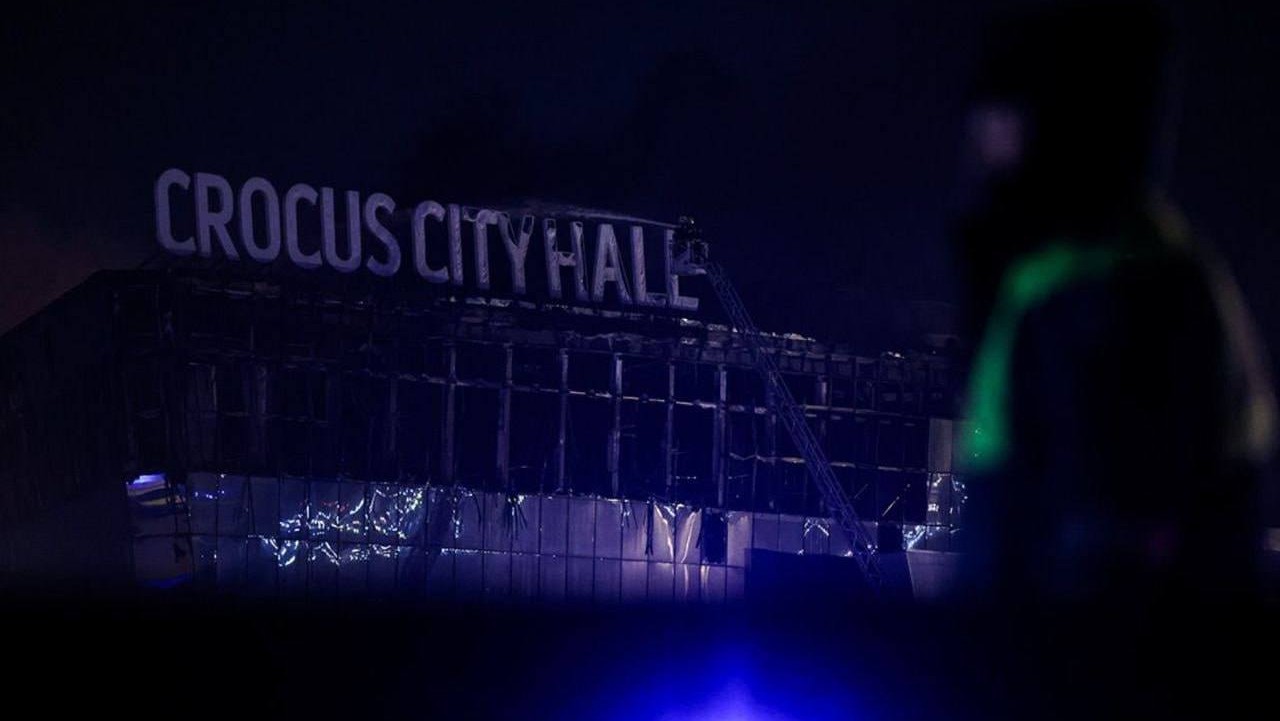Today's Headlines and Commentary
We begin with foreign affairs: Israel just halted peace talks with Palestine, reports the Associated Press. The move comes as a response to the unity pact signed by the PLO and Hamas yesterday evening, in which the two factions agreed to form a government in five weeks that would hold elections in Palestine six months later.
Published by The Lawfare Institute
in Cooperation With

We begin with foreign affairs: Israel just halted peace talks with Palestine, reports the Associated Press. The move comes as a response to the unity pact signed by the PLO and Hamas yesterday evening, in which the two factions agreed to form a government in five weeks that would hold elections in Palestine six months later. The deal was harshly condemned by Israel and the United States---no surprise there. Here are the New York Times, the Washington Post, and the Wall Street Journal.
Reuters informs us that the United States might have to reassess its assistance to the PLO after yesterday’s pact. America lists Hamas a terrorist organization.
Lest anyone think that all is quiet on the Eastern front: The Times and Journal report on Russian military exercises recently launched on the Ukrainian border, and escalating threats of intervention if the Ukrainian military advance continues.
Meanwhile, Gen. Abdurrashid Dostum, a colorful and divisive warlord in Afghanistan, is the vice-presidential candidate on the ticket of Ashraf Ghani---one of the two front-runners in Afghanistan’s election. The Post describes his tumultuous relationship with the United States, and his relationship to President Karzai.
Reuters reports that the Obama administration is set to respond to a congressional mandate that it provide information on prisoners currently detained in the Parwan detention center, a U.S. military prison north of Kabul. The fates of some of the prisoners there are nearly as complicated as those of some Guantanamo detainees.
Another day, another red line: President Obama has reaffirmed his commitment to a defense treaty obligating the US to protect Japan in its confrontation with China over islands in the East China Sea. The Times describes the President’s carefully calibrated attempt to reassure the Japanese without antagonizing China.
Scotland Yard is working with charitable organizations to prevent British Muslims from joining the ongoing war in Syria. The Guardian has more.
Maher Abdul-Hafiz Hajjar, a Syrian lawmaker, has registered to run against Syrian President Bashar al-Assad in the June 3 presidential election.
National Public Radio reports that the CIA is quietly ramping up military aid and training to moderate Syrian rebels.
Two senior Al Qaeda leaders have moved up in life: Ibrahim Ali Abu Bakr Tantoush “has taken control of a secretive training facility set up by U.S. special operations forces on the Libyan coastline to help hunt down Islamic militants,” Eli Lake at the Daily Beast tells us. And Sanafi al Nasr, a third cousin of Osama bin Laden, has relocated to Syria and is openly planning and conducting operations, says Catherine Herridge at Fox News.
And Tony Blair, former British prime minister, spoke about the challenges posed by the spread of Islamic radicalism.
In domestic developments: Regulators from the Federal Communications Commission are set to propose new rules allowing broadband providers to give preferential treatment to content providers, on "commercially reasonable" terms. The shift marks a major tweak to the FCC’s traditional approach to “internet neutrality.” The Journal has the story.
In the Times, Mark Mazzetti reports that a hacker-turned FBI informant coordinated a campaign of hundreds of cyberattacks on foreign websites in 2012. Based on court documents, Mazzetti writes that the informant, Hector Xavier Monsegur aka Sabu, directed other hackers to upload data stolen from the servers of other countries onto a server monitored by FBI.
For those of us convinced that oversight is the key to good governance, here’s some disturbing news: According to a new report from a Senate panel, Charles K. Edwards, acting DHS inspector general from 2011 through 2013, developed extremely cozy relationships with department leaders, providing them with inside information about ongoing investigations and ordering favorable changes to oversight reports. The Post has the story and the Senate report.
Not everyone is satisfied with Monday’s court ruling ordering the release of a redacted legal memo authorizing the killing of US citizens actively engaged in hostilities against the US abroad: According to The Hill, Senator Chuck Grassley is demanding that the unredacted OLC memo be made available to the Senate Judiciary Committee.
Sam Kleiner, of the Yale Law Information Society Project, argues in the New Republic for greater government transparency in national security matters in the wake of the ruling.
A search and rescue organization has filed a lawsuit in federal court seeking to overturn an FAA order prohibiting their use of drones. Fox News has the story.
The Post editorial board criticizes DNI James Clapper’s “gag order” from March 20, saying:
It is unfortunate that Mr. Clapper’s directive works in the opposite direction of what is needed. After the Edward Snowden affair, the intelligence community needs to build trust in its work, which is vital to the nation. Instead, the new directive will lead to more isolation and suspicion.
Jack Shafer has a similar reaction in his Reuters column.
Carol Rosenberg has yesterday's recap from the ongoing military commission trial of Abd al Rahim al Nashiri. Matt Danzer is poring through the transcripts; be sure to check out his excellent recap.
And, the AP says the Senate SSCI report on enhanced interrogation, when declassified, could further complicate the trials of the terrorist suspects at Guantanamo Bay.
Email the Roundup Team noteworthy law and security-related articles to include, and follow us on Twitter and Facebook for additional commentary on these issues. Sign up to receive Lawfare in your inbox. Visit our Events Calendar to learn about upcoming national security events, and check out relevant job openings on our Job Board.





